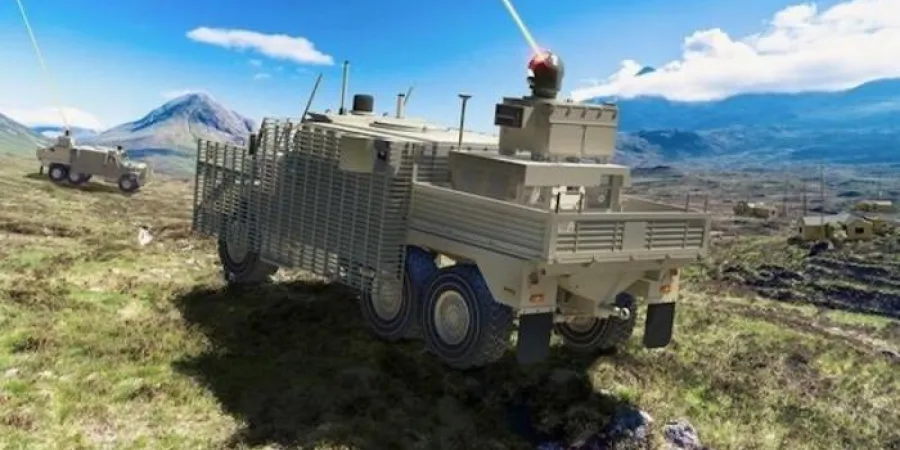Raytheon to develop laser for British Defence Ministry
The contracts awarded to consortia led by Raytheon UK and Thales UK are collectively valued at 72.5 million British pounds ($100 million)
Ami Rojkes Dombe
|
17/09/2021
The British Defence Ministry revealed that it has awarded contracts for development and demonstration of experimental directed-energy weapon (DEW) systems.
The contracts awarded to consortia led by Raytheon UK and Thales UK are collectively valued at 72.5 million British pounds ($100 million). The systems, which are part of the ministry's weapons program, will be integrated onto existing platforms for experimentation from 2023.
As DEW systems are powered by electricity and operate without ammunition, they significantly reduce operating costs, increase platform endurance, and provide a high degree of offensive and defensive flexibility.
Minister for Defence Procurement Jeremy Quin, who announced the contracts at the DSEI 2021 exhibition, said DEW systems constitute "a key element of our future equipment programmes" and that Britain aspires "to become a world leader in the research, manufacture, and implementation of this next-generation technology."
Raytheon UK, together with NP Aerospace, Frazier Nash Consultants, and Raytheon Technologies, will supply a vehicle-based laser DEW (LDEW) demonstrator for up to six months of user experimentation led by the British Army.
The system is to be installed on a Wolfhound wheeled armored vehicle, with experimentation planned for 2023. User experimentation will address the effects on unmanned aerial vehicles and land-based targets.
"This is the (UK's) first real step into utilizing such a laser in a real-world environment," said Raytheon UK's director of strategy and business development, Simon Kings.
The contracts awarded to consortia led by Raytheon UK and Thales UK are collectively valued at 72.5 million British pounds ($100 million)
The British Defence Ministry revealed that it has awarded contracts for development and demonstration of experimental directed-energy weapon (DEW) systems.
The contracts awarded to consortia led by Raytheon UK and Thales UK are collectively valued at 72.5 million British pounds ($100 million). The systems, which are part of the ministry's weapons program, will be integrated onto existing platforms for experimentation from 2023.
As DEW systems are powered by electricity and operate without ammunition, they significantly reduce operating costs, increase platform endurance, and provide a high degree of offensive and defensive flexibility.
Minister for Defence Procurement Jeremy Quin, who announced the contracts at the DSEI 2021 exhibition, said DEW systems constitute "a key element of our future equipment programmes" and that Britain aspires "to become a world leader in the research, manufacture, and implementation of this next-generation technology."
Raytheon UK, together with NP Aerospace, Frazier Nash Consultants, and Raytheon Technologies, will supply a vehicle-based laser DEW (LDEW) demonstrator for up to six months of user experimentation led by the British Army.
The system is to be installed on a Wolfhound wheeled armored vehicle, with experimentation planned for 2023. User experimentation will address the effects on unmanned aerial vehicles and land-based targets.
"This is the (UK's) first real step into utilizing such a laser in a real-world environment," said Raytheon UK's director of strategy and business development, Simon Kings.



